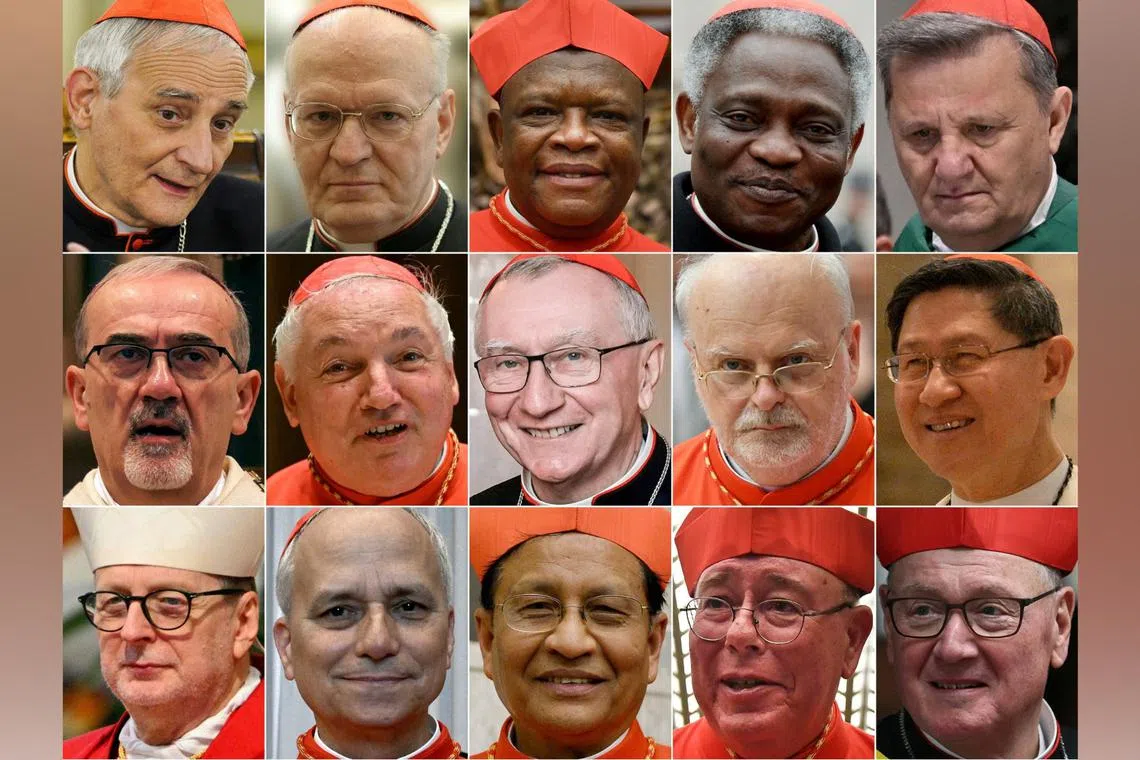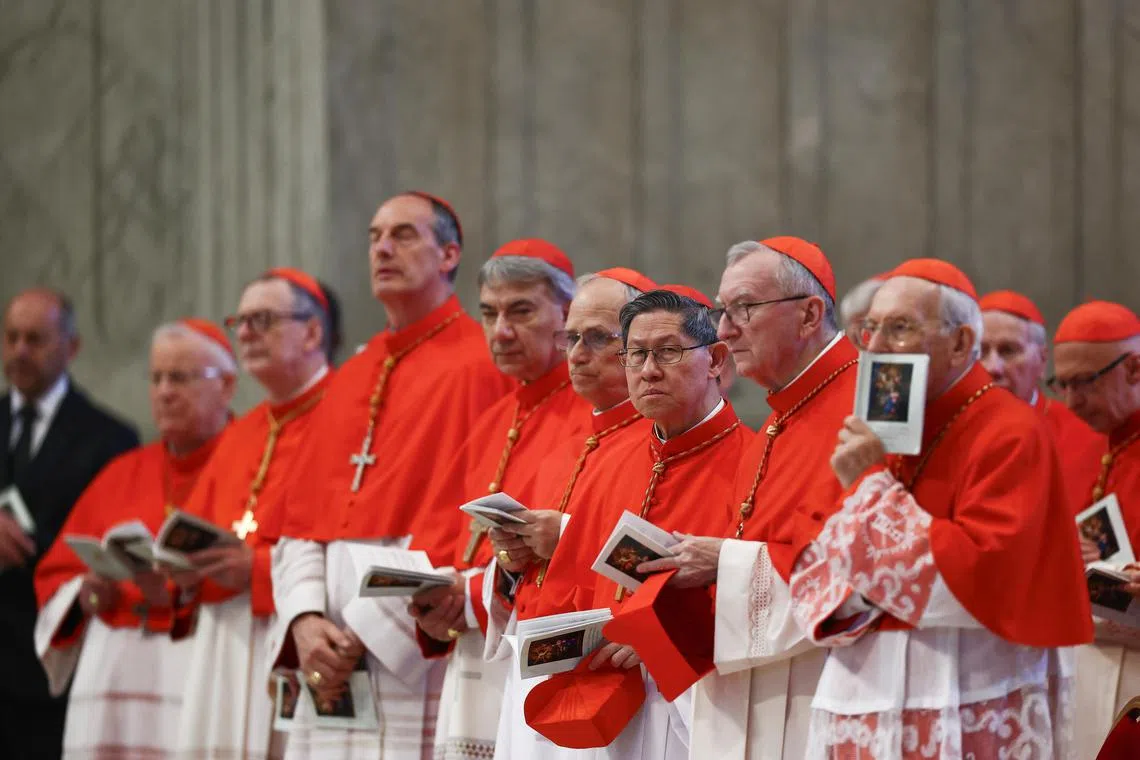Pope’s death sparks betting frenzy for successor
Sign up now: Get ST's newsletters delivered to your inbox

Cardinals who are tipped to succeed Pope Francis include the Vatican’s chief diplomat Pietro Parolin (centre), who was Pope Francis’ No. 2 during much of his papacy.
PHOTO: AFP
LONDON – The date when Catholic cardinals will gather to select Pope Francis’ successor is not yet known. But bookmakers and crypto investors are already scrambling to guess who will be the next pontiff.
Just days after Pope Francis died on April 21
The next pope is among the 30 most active betting markets in 2025, overtaking even the hugely popular FA cup, according to FairPlay.
Italian Cardinal Pietro Parolin, the Vatican’s chief diplomat who was Pope Francis’ No. 2 during much of his papacy, was leading several bookies’ lists in what experts say is a “multi-million dollar global market”.
British bookmaker William Hill had Cardinal Parolin out in the front with 9/4 odds – a safe bet. At his heels was charismatic moderate Cardinal Luis Antonio Tagle – a Filipino who could be the first Asian pope – at 3/1.
Tussling between third and fourth place across lists was Cardinal Matteo Zuppi, the archbishop of Bologna who served as the late Pope’s special peace envoy for Ukraine.
Oddschecker, a website that compares online bets, has a section dedicated to the “next pope” which has been visited by over 100,000 users, according to FairPlay.
While bookmakers have carved out early favourites, the outcome of the secretive papal conclave remains wildly unpredictable.
‘Inconsistent’
At least 15 days, and no more than 20 days after Pope Francis’ death, 135 cardinal electors are due to take part in a conclave to pick a successor, usually from among their ranks.
While the Catholic Church frowns upon over-enthusiastic betters, gambling on the outcome has taken place for centuries.
“What was once a pursuit confined largely to Renaissance Roman bankers and courtiers has evolved into a multi-million dollar global market accessible at the click of a button or a tap on a crypto wallet,” said Professor Leighton Vaughan Williams, who teaches economics and finance at Nottingham Business School.
The “papal betting market has grown substantially” from previous modern-day conclaves in 2005 and 2013, Prof Vaughan Williams said.
However, “their accuracy in forecasting the secretive papal conclave remains inconsistent”, warned the researcher, who charted the outcomes of 500 years of conclave betting in a 2015 study.
In 2013, Pope Francis, born Jorge Mario Bergoglio, was not considered a favourite, and was ranked as low as 40th on some bookmakers’ lists.
While Vatican experts and analysts weigh in on possible frontrunners, the cardinals who form the conclave are sworn to secrecy on pain of excommunication.
“Without solid information to trade on… markets are largely reflecting speculation, media narratives and existing biases,” said Prof Vaughan Williams.

Filipino Cardinal Luis Antonio Tagle (third from right) has a 3/1 odds of being picked as Pope Francis’ successor.
PHOTO: REUTERS
Social media and crypto
Interest has also surged this time following the 2024 release of Oscar-winning film Conclave
One image widely circulated on X breaks down potential successors by their ideological beliefs, with users comparing them to characters in the fictional film.
Some social media users have thrown their weight behind Cardinal Tagle for his moderate views and tolerance towards LGBTQ individuals.
Another social media favourite is Cardinal Peter Turkson from Ghana who could be in the running to become the first black pontiff.
The speed with which betting activity has taken off “underscores an enduring cultural fascination with the papacy, amplified by media coverage and popular culture”, according to Prof Vaughan Williams.
Beyond bookmakers’ lists and seasoned betters, predictions have been thrown wide open with crypto-powered websites like Polymarket, where investors bet on future events.
The American website, which was popular during the US election won by Donald Trump, has already accepted over US$5.5 million (S$7.2 million) in bets on who will be the next pope.
According to Prof Vaughan Williams, platforms like Polymarket represent a “significant shift” by attracting more bets while navigating an “uncertain regulatory landscape”.
Polymarket placed Cardinal Parolin at a leading 28 per cent chance of becoming pontiff, and its comment section is rife with discussions on the competence of the favourites.
“The next pope will be more religiously conservative but still open to progressive ideas on social issues,” mused one user.


